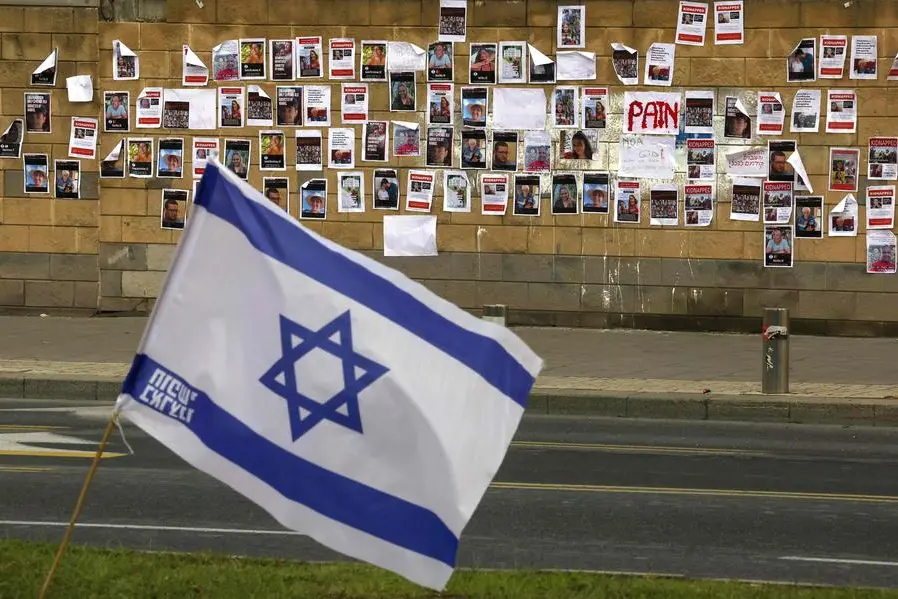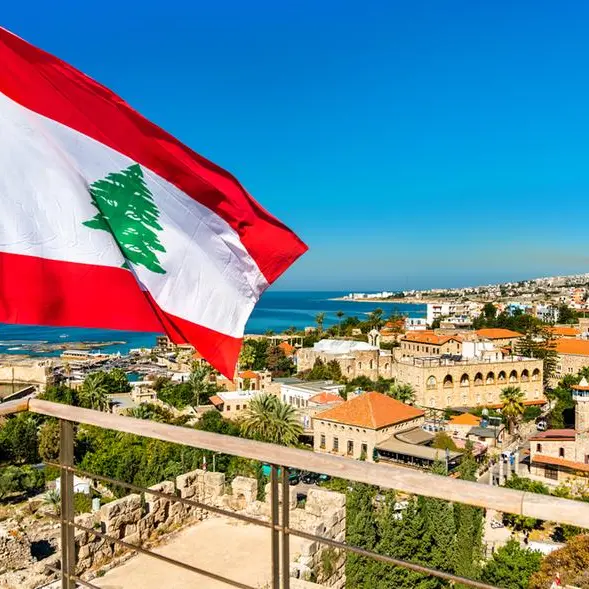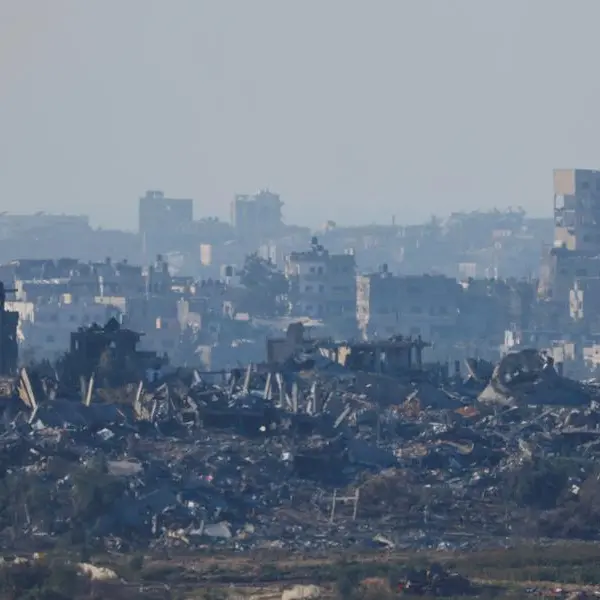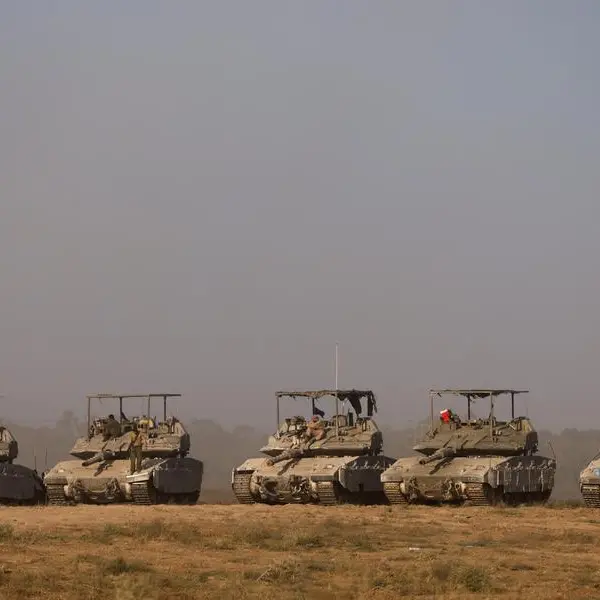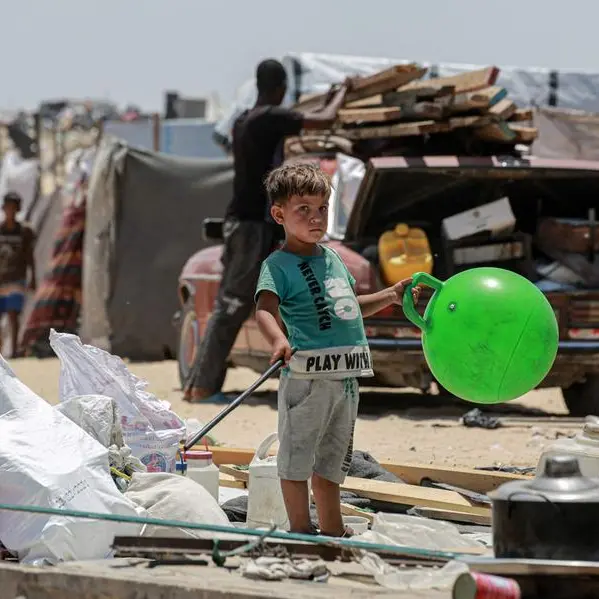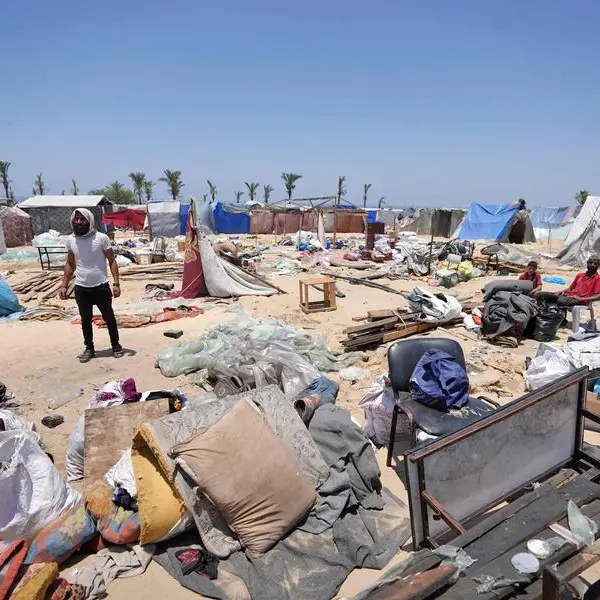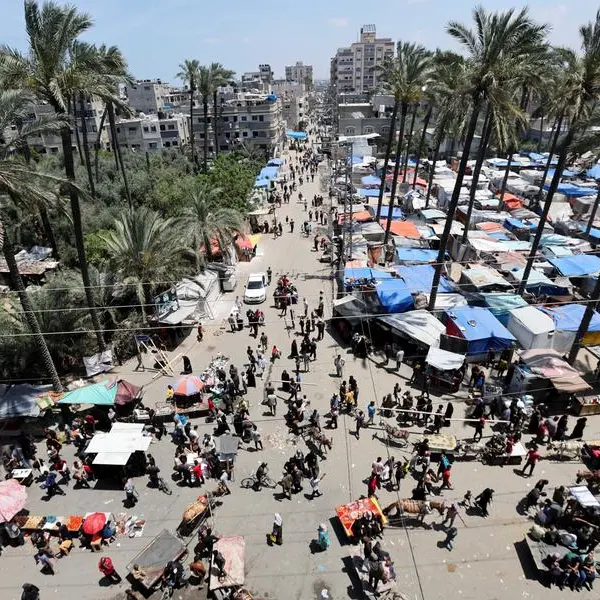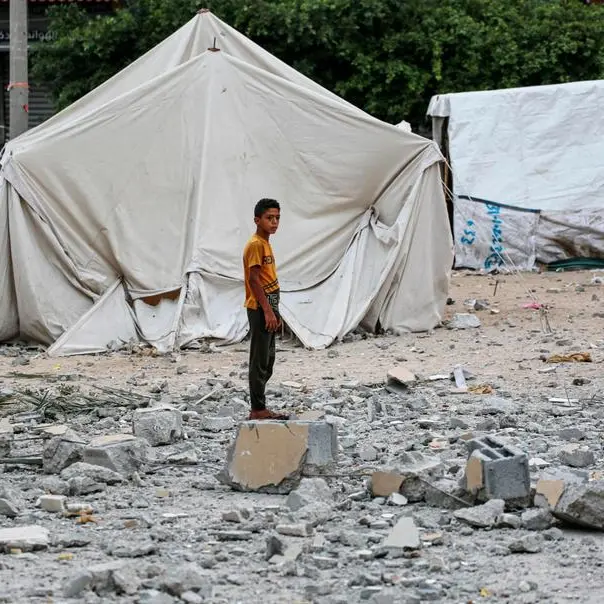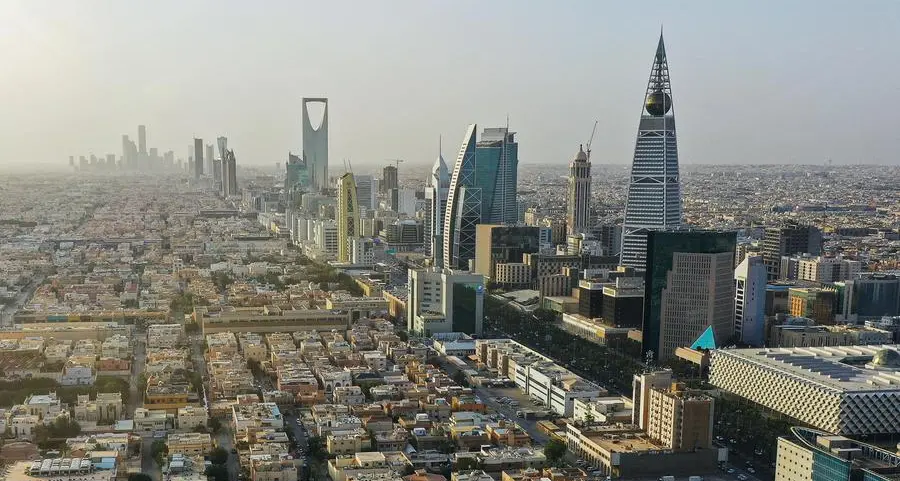PHOTO
Around 500,000 Israelis have been evacuated and displaced in the 10 days since Hamas unleashed the bloodiest attack in the country's history, the Israeli military said Tuesday.
"There are about half a million internally displaced Israelis at the time," Jonathan Conricus, spokesman for the Israel Defense Forces (IDF), said in an online briefing.
He pointed out that all communities around the Gaza Strip had been evacuated, as had more than 20 communities along Israel's northern border with Lebanon.
The evacuations follow the brutal surprise attack by Hamas fighters, who broke through the heavily fortified border on October 7 and killed more than 1,400 people, most of them civilians.
It was the worst attack in the country's 75-year history. Israel's relentless series of retaliatory air strikes in the Gaza Strip have flattened neighbourhoods, killing at least 2,750, most of them ordinary Palestinians.
More than one million people have been displaced inside the densely populated Palestinian territory, as Israel prepares for a full-blown ground offensive against Hamas.
Many of the people in Israeli communities around the Gaza Strip had initially "evacuated on their own merit and at their own initiative", Conricus said, adding that since then "all of the communities around the Gaza Strip have been evacuated as per government directives".
"We don't want civilians near the combat zone," he said, stressing that "we want to protect civilians, first and foremost ours, against the horrible effects of war".
Israel's army has also been evacuating residents living along its northern border with Lebanon, amid rising tensions with the Hezbollah militant group.
An Israeli civilian and an army officer were killed Sunday in missile attacks from Lebanon, and the army carried out retaliatory strikes and attacked the militant group's infrastructure.
The move affects thousands of people living in 28 communities.
Many had already left the area after repeated cross-border fire in recent days has claimed lives on both sides of the UN-patrolled border between Lebanon and Israel which remain technically at war.
Those evacuated had found "temporary refuge with friends and family in central Israel", Conricus said.
Those areas "are deemed safer, although they are also under constant rocket attacks and have to be in shelters", he said.
"We are talking about a significant humanitarian situation in Israel," he said, acknowledging though that "the situation in Gaza is worse.
"I wouldn't want to swap tables for even a second."
